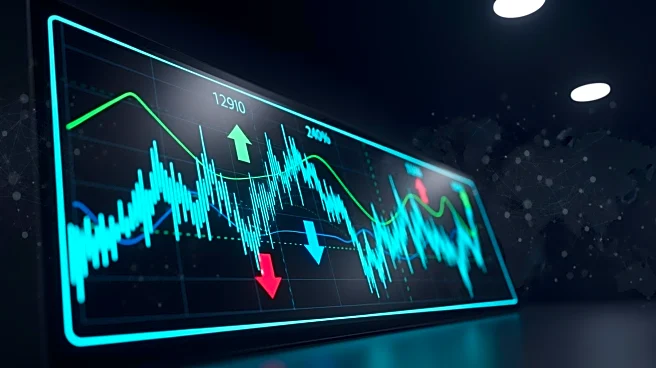What is the story about?
What's Happening?
An international team of scientists has successfully developed a quantum version of Bayes' rule, a mathematical approach to calculating probabilities first introduced in 1763. This breakthrough, published in Physical Review Letters, was achieved by Professor Valerio Scarani from the Centre for Quantum Technologies, Assistant Professor Ge Bai from the Hong Kong University of Science and Technology, and Professor Francesco Buscemi from Nagoya University. The team derived a true quantum Bayes' rule based on a core physical principle, marking a significant advancement in mathematical physics. Bayes' rule traditionally helps update beliefs based on new information, treating probabilities as measures of belief rather than absolute facts. The quantum version applies the principle of minimum change, minimizing the distance between initial and updated beliefs using quantum fidelity, a measure of closeness between quantum states.
Why It's Important?
The development of a quantum Bayes' rule is a significant advancement in the field of quantum computing and mathematical physics. It offers a new framework for decision-making under uncertainty, which is crucial for applications in quantum error correction and machine learning. By maximizing fidelity between quantum states, this rule provides a more accurate method for updating beliefs based on new information, potentially improving the efficiency and reliability of quantum computing processes. This breakthrough could lead to enhanced capabilities in data science, medical testing, and weather forecasting, where probability calculations are essential. The validation of the Petz recovery map through this new principle also opens up possibilities for further exploration in quantum measures.
What's Next?
The research team plans to explore the application of the minimum change principle to other quantum measures, which may reveal additional solutions and further advancements in quantum computing. This could lead to new methodologies for quantum error correction and machine learning, enhancing the performance and accuracy of quantum systems. As the quantum Bayes' rule becomes more integrated into practical applications, industries reliant on probability calculations may experience significant improvements in decision-making processes. The ongoing research may also inspire further studies into the intersection of classical and quantum probability theories, potentially leading to new discoveries in mathematical physics.
Beyond the Headlines
The introduction of a quantum Bayes' rule highlights the evolving nature of probability theory and its applications in modern technology. This development underscores the importance of interdisciplinary collaboration in advancing scientific knowledge, as researchers from different fields contribute to breakthroughs that have wide-ranging implications. The ethical considerations of using quantum probability in decision-making processes, particularly in areas like medical testing and data science, may also become a topic of discussion as these technologies become more prevalent. The long-term impact of this advancement could reshape how industries approach uncertainty and risk management.















